How to Increase Landing Page Conversions
Having a well-crafted landing page is paramount for any business aiming to drive conversions and acquire users effectively. Unlike traditional website pages that serve multiple purposes, landing pages are designed with a singular focus: to compel visitors to take a specific action, whether signing up for a newsletter, downloading a resource, or purchasing a product. This targeted approach enhances user experience and significantly boosts conversion rates.
A landing page acts as a powerful marketing tool, providing a distraction-free environment that allows potential customers to engage deeply with your offer. By presenting a clear and persuasive message along with visually appealing elements—such as catchy headers, images, and videos—you can capture the attention of visitors and guide them seamlessly down the path to conversion. Furthermore, integrating your landing page with email marketing campaigns allows for nurturing leads and establishing lasting relationships with your audience.
In essence, a well-designed landing page is not just an asset; it's a critical component of your marketing strategy that drives results and fosters growth. Let's see how to increase our conversions.
Looking to display dynamic and eye-catching latest posts on your WordPress website?
WP Latest Posts plugin has got you covered. Engage your visitors with a beautiful and
customizable display of your most
recent content.
Try it now!
Table of content
- Strategy to Create a High Converting Landing Page
- Understanding Your Target Audience: The Key to Successful Marketing
- 1 - Define Your Ideal customer
- 2 - Conduct Market Research
- 3 - Analyze Previous Interactions
- 4 - Segment Your Audience
- 5 - Create Buyer Personas
- 6 - Check Your Ads
- Crafting Compelling Headlines
- Trust Badges: A Symbol of Security
- Crafting Irresistible and clear CTAs
- Boost Your Landing Page Speed
- Implementing A/B Testing Strategies
- Keep tracking and testing to achieve conversions
Strategy to Create a High Converting Landing Page
It is always better to have a strategy when doing important processes and creating a high converting landing page is one of the most important processes that we will be doing in our site as it will allow us to get users/customers and offer our services and/or products properly.
Let's divide this process in strategies and explain further each point to better understand and properly create our perfect landing page.
Understanding Your Target Audience: The Key to Successful Marketing
When talking about audience, one size does not fit all. To truly resonate with your audience and drive conversions, you must first understand who they are, what they want, and how they behave. Let's check the steps to identify and understand your target audience.
1 - Define Your Ideal customer
To start, create a detailed profile of your ideal customer. Consider demographics such as age, gender, income level, education, and location. Beyond the numbers, delve into psychographics: what are their interests, values, pain points, and aspirations? For example, if you are selling personalized workout plans, think about busy moms who struggle to find time for fitness. Understanding their lifestyle and challenges will help you tailor your messaging.
2 - Conduct Market Research
Gather data to support your customer profile. Use various methods to conduct market research, such as:
-Surveys and Polls: Create surveys that ask direct questions about preferences, habits, and challenges.
-Forums: Participate in discussions or simply observe conversations in forums related to your niche. This could provide insights into common questions and concerns.
-Social Media Listening: Monitor social media platforms to understand topics that resonate with your audience, allowing you to tap into their interests.
3 - Analyze Previous Interactions
Review past interactions with your audience and make yourself some questions like What types of content or products received the most engagement? What feedback did you receive?
Use Google Analytics to examine your website traffic and identify which pages had the highest conversion rates. Understanding how your audience has interacted with your brand in the past can provide valuable insights for the future.
4 - Segment Your Audience
Not all audience members are created equal. Segment your audience based on shared characteristics or behaviors. This allows you to create tailored messaging for each group. For instance, while one segment may consist of busy moms seeking quick workout solutions, another may include fitness enthusiasts looking for advanced training regimens. Tailoring your approach based on these segments will make your marketing more relevant and effective.
5 - Create Buyer Personas
Transform your insights into actionable buyer personas. A buyer persona is a semi-fictional representation of your ideal customer based on research and data. Include information such as demographics, motivations, challenges, and preferred communication channels. These personas will serve as a reference point for all your marketing efforts, ensuring that your messaging aligns with your audience's needs.
6 - Check Your Ads
Once you have a solid understanding of your audience, evaluate the effectiveness of your advertisements. Your ads should target the right audience segments, using compelling visuals and persuasive copy that speaks directly to their needs. Check metrics such as impressions, click-through rates, and conversions to determine if your ads resonate with your audience. If they're not performing well, consider refining your targeting or adjusting your messaging.
Crafting Compelling Headlines
Now that the audience is defined we can proceed with the headline, you need to keep in mind that this is the first impression visitors will have of your landing page, making it one of the most critical elements in the conversion process. A well-crafted headline can be the difference between a visitor scrolling away or diving deeper into your content. Here's how to create headlines that grab attention and encourage action.
1 - Use Persuasive Language
Incorporate strong, action-oriented words that evoke emotion and urgency. Words like "discover," "unlock," "transform," and "unleash" can stir curiosity and compel visitors to read on. For instance, "Unleash Your Potential: Transform Your Skills with Our Expert Training" not only highlights a benefit but also creates a sense of possibility.
2 - Highlight Benefits Over Features
While it's essential to communicate what your product or service does, it's more impactful to focus on how it can benefit your audience. A headline like "Say Goodbye to Stress: Experience Peace and Productivity with Our Mindfulness Course" clearly states the problem and presents a solution, compelling the visitor to learn more.
3 - Create Sense of Urgency
Encouraging immediate action can significantly boost conversions. Phrases like "limited time offer," "only a few spots left," or "get it before it's gone" can instill a fear of missing out (FOMO). For example, "Join Today and Get 50% Off – Limited Spots Available!" not only informs but also motivates action based on urgency.
4 - Incorporate Numbers and Lists
Headlines that include numbers or lists tend to attract more attention and are often perceived as more digestible. For instance, "7 Proven Strategies to Skyrocket Your Sales" promises actionable insights and a clear takeaway, making it more enticing.
5 - Ask Questions
Starting with a question can provoke thought and engage your audience right away. For instance, "Are You Tired of Wasting Time on Ineffective Marketing Strategies?" directly addresses a common concern and encourages visitors to continue reading for solutions.
6 - Use Sub-headlines
If your main headline is catchy, a sub-headline can provide further clarification or context. This is your opportunity to expand on your value proposition. For example, "Revolutionize Your Fitness Routine – Join Our Community of Health Enthusiasts Today!" gives more detail while maintaining excitement.
Trust Badges: A Symbol of Security
Trust badges are essential visual elements that signal to visitors that your website is secure and your business is reliable. By displaying trust badges, you can leverage the authority of well-known entities to boost your own credibility. Here are some common trust badges to consider:
SSL Badges: Indicate that your site is secure and that customer data is encrypted, which is crucial for e-commerce sites handling sensitive information.
Money-back Guarantee: This badge reassures customers that they can shop risk-free, knowing they can reclaim their money if they are not satisfied.
Free Shipping Icons: Many customers appreciate free shipping offers. Displaying this badge can encourage them to complete their purchases.
Payment Security Badges: Icons representing secure payment methods (like PayPal, Visa, MasterCard, etc.) can instill confidence in customers worried about the safety of their financial information.
Client Logos: If you have worked with reputable brands or have well-known customers, displaying their logos can enhance your authority and trustworthiness.
Crafting Irresistible and clear CTAs
Creating a high-converting landing page revolves around one key element: the Call-to-Action (CTA). A well-crafted CTA guides visitors toward the desired action, whether it's signing up for a newsletter, making a purchase, or downloading a resource.
To achieve maximum effectiveness, your CTA must be clear, concise, and compelling. It should eliminate any ambiguity about what the visitor should do next, providing a seamless path towards conversion.
We should remember this when positioning our CTAs effectively:
Above the Fold: Include a strong CTA near the top of the page so that visitors see it without scrolling.
Throughout the Content: As users scroll through your landing page, incorporate additional CTAs that naturally fit within the flow of information.
At the End: Conclude your landing page with a final, compelling CTA to capture those who are ready to take action after reading through your offer.
Your CTA should be complemented by a strong value proposition. Clearly communicate what sets your service apart from the competition. For example, if you're offering a unique service, make sure visitors understand the exceptional benefits they will receive.
Example: "Join thousands of satisfied customers who have transformed their lives with our tailored solutions. Don't miss out on the opportunity to elevate your experience!"
A good example of generating CTAs is showing a preview of what we offer, it could be products, articles, services, or anything else and we can use plugins to accomplish this, WP Latest Post is a good idea when generating this section.
It offers many tools and is a simple "click to configure" plugin that generates sections using predefined themes and filters.
Let's say that we have an Ecommerce and we want our visitors to purchase a product, what do we do? A section showing our best sellers or newest products.
To do this, we need to create a new Block under the plugin dashboard.
Now we can select the content source, we have many tools to select the source, including the post type, categories, published date range, order, we will also be able to select the number of columns and rows that we want for the block.
As we need to create a block for products, we'll go directly to the Custom Posts tab, we will be able to directly select Product or any other Custom Post Type on your site.
Now we can proceed to select one of the themes and adjust it to make it fit our landing page.
As a final step we have the Shortcode configuration where we can not just copy the shortcode to add it to any place in our site but also define the publish date and the visibility of our block.
It is important to note that there is a dedicated block in all major page builders, for example, in Gutenberg.
Now we can show our focus product/service in a professional and quick way to attach our visitors.
And we can also keep in mind creating other content source blocks like, for example, testimonials ;)
Boost Your Landing Page Speed
A sluggish landing page can lead to a significant drop in user engagement, conversions, and search engine rankings. Google and other search engines prioritize websites with fast load times, making it a crucial factor for SEO success.
Key Strategies to Improve Landing Page Speed
There are effective keys that will help us when improving our landing page speed, it is important to note that plugins like WP Speed of Light can also help with all of these almost automatically.
Optimize Images
Compress: Use tools like ImageRecycle (integrated with WP Speed of Light) to reduce file size without compromising quality.
Resize: Ensure images are sized appropriately for their use on the page.
Lazy Loading: Delay loading images until they are visible in the viewport to improve initial page load speed.
Minify CSS, HTML, and JavaScript
Eliminate whitespace, comments, and other non-essential elements from your code, this can be easily done with the plugin mentioned before.
Leverage Browser Caching
Set cache headers: Enable browsers to store static assets like CSS, JavaScript, and images locally, reducing the need to fetch them from the server on subsequent visits.
Optimize Server Response Time
Choose a reliable hosting provider: Select a provider with fast servers and good uptime.
Implement caching: Utilize server-side caching to store frequently accessed content and reduce processing time.
Use a Content Delivery Network (CDN): Distribute your content across multiple servers worldwide to improve load times for users in different locations.
Prioritize Mobile Optimization
Responsive design: Ensure your landing page adapts seamlessly to different screen sizes and devices it is important to note using responsive-friendly plugins like WP Latest Posts, WP Media Folder, or WP Table Manager.
Minimize redirects: Avoid unnecessary redirects that can slow down mobile page loading.
Additional Tips
Monitor performance: Regularly test your landing page speed using tools like Google PageSpeed Insights or GTmetrix.
Stay updated: Keep up with the latest web development practices and technologies to optimize your page speed.
Prioritize user experience: Fast load times contribute to a positive user experience, which can ultimately impact conversions and SEO.
Implementing A/B Testing Strategies
A/B testing is a powerful tool for website owners to experiment with different variations of a page or element and determine which performs best. By testing different versions, you can make data-driven decisions to improve your website's user experience, conversion rates, and overall effectiveness.
It is important to run A/B Tests on each Strategy/topic so we can define what is the best for our sites to accomplish conversions.
A few examples would be:
Headline variations: Test different headlines to see which one grabs attention and drives more clicks.
Call-to-action (CTA) placement and wording: Experiment with different CTA placements and wording to see what encourages more conversions.
Image variations: Test different images or visuals to see which ones resonate with your audience.
Best Practices for A/B Testing
Start Small: Begin with testing one element at a time to avoid overwhelming yourself.
Use a hypothesis: Clearly define your hypothesis before starting a test.
Run tests for a significant duration: Allow your tests to run for a sufficient amount of time to collect reliable data.
Analyze results carefully: Carefully analyze your test results to identify patterns and insights.
Continuously experiment: A/B testing is an ongoing process. Continuously experiment and optimize your website to improve its performance.
Attention WordPress website owners!
Keep your visitors informed and engaged with WP Latest Posts plugin. Easily showcase your
latest articles, news, or
updates in a stunning and user-friendly format.
Get started today!
Keep tracking and testing to achieve conversions
Now that we have these strategies in place, the most crucial step is ongoing testing and tracking.
Conducting A/B tests and closely monitoring results is essential because the market is constantly changing. Our websites need to adapt and grow accordingly. The data we gather through testing will guide us toward the best practices for achieving our goals, increasing conversions, and acquiring new users.
The use of plugins like WP Media Folder to generate galleries, WP Latest Posts to generate useful sections, and WP Speed of Light to improve our landing and general page performance will also help us with our site conversions so what are you waiting for? Achieve your marketing goals now!
When you subscribe to the blog, we will send you an e-mail when there are new updates on the site so you wouldn't miss them.

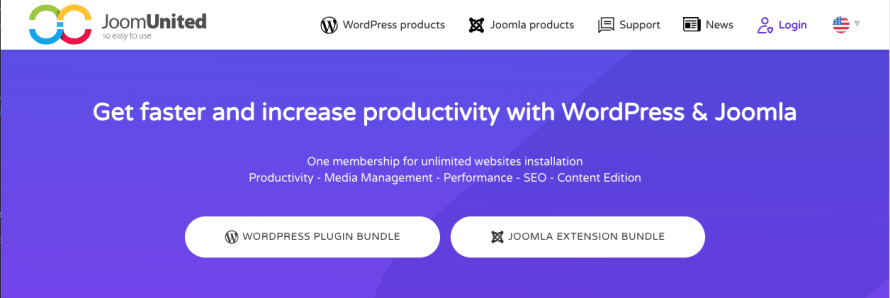

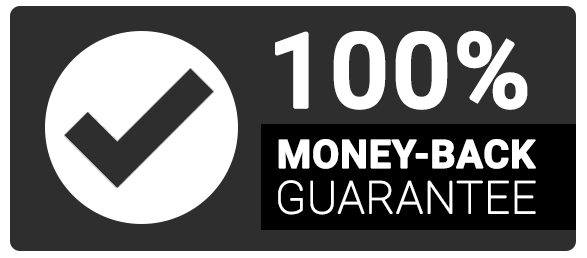


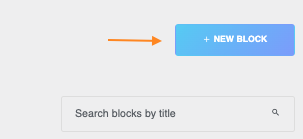
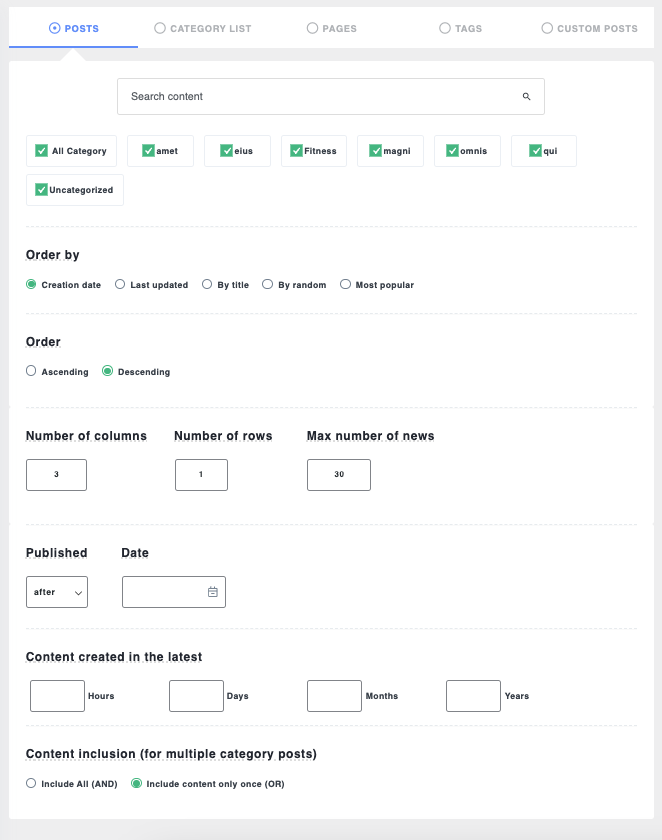
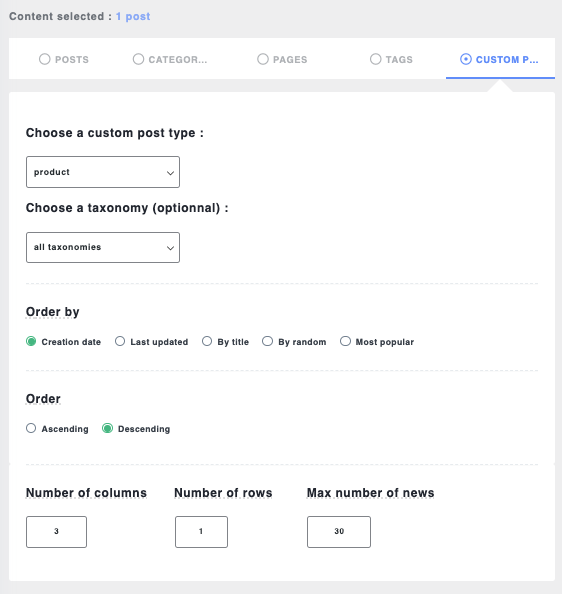
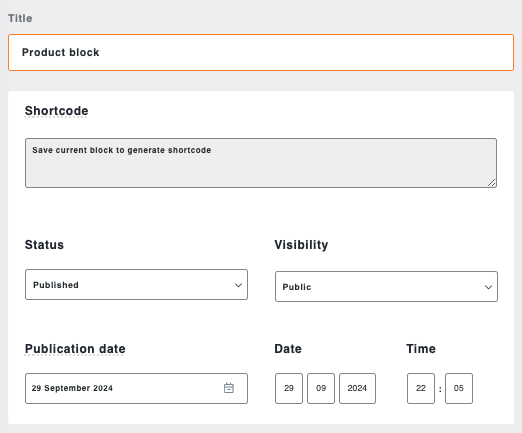
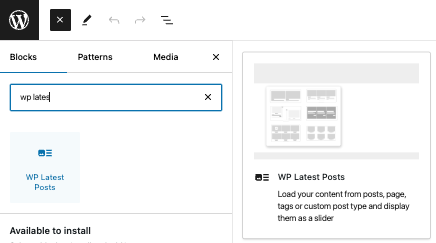

Comments